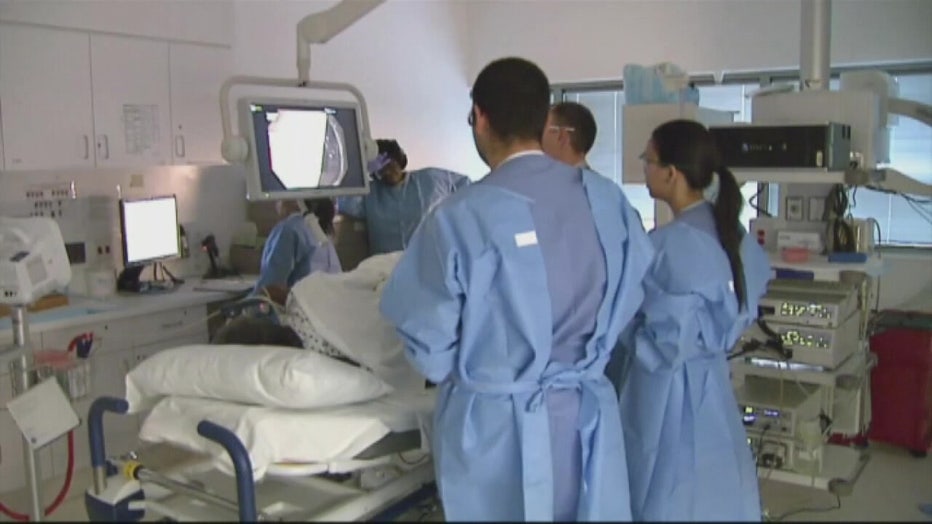Local doctors, medical groups push back against new study that questions colonoscopy screening benefits
TAMPA, Fla. - Local doctors and major medical groups are pushing back, saying a new study that questioned the benefits of screening for colon cancer is flawed.
The findings were published in the New England Journal of Medicine last week, suggesting that colonoscopy screening may not significantly reduce your risk of developing and dying from colon cancer.
Colorectal cancer is a leading cause of cancer deaths in the United States.
READ: American Cancer Society helps young mother through breast cancer battle
"It's a major cancer," said Moffitt Cancer Center Gastroenterologist Dr. Mark Friedman. "It's one of the most common cancers we have."
The gold standard to screen for the disease is a routine colonoscopy starting at age 45.
"Colonoscopy is really the only tool that can both identify and remove polyps, thereby removing the risk of you developing colon cancer from that polyp," explained Friedman.
Multiple studies have backed that up, finding colonoscopies can save lives.
RELATED: Ryan Reynolds films colonoscopy to raise cancer awareness; doctors find polyp

However, new research out of Europe is now questioning the benefits of the procedure. Scientists used 10 years of data from Poland, Norway and Sweden, finding there was only an 18% reduction in colorectal cancer among the thousands of participants invited to receive a colonoscopy.
"The way the study was done, very difficult to look at it and say that it's a good study," Friedman said.
Yet he is not alone in that assessment. The American Cancer Society, as well as The American Society for Gastrointestinal Endoscopy, both released statements pointing out flaws in the research. This includes the fact that almost 60% of participants invited to have a colonoscopy failed to have the procedure done. If the results are restricted to only the people who actually had a colonoscopy, it reduced the risk of colorectal cancer by 31%.
"They basically are throwing in a group here that shouldn't have been analyzed as part of that group. And I think that dramatically skews the data and something that needs to be looked into," said Friedman.
This controversial study has gotten a lot of media attention, and Friedman said he is very concerned it will be the reason more patients either skip or second-guess being screened.
MORE: Frequent chemical hair straightening linked to higher uterine cancer risk, NIH study finds
He argued, even if having a colonoscopy only reduces your risk of colorectal cancer by 18% that is still one in five people who will not develop the disease.

